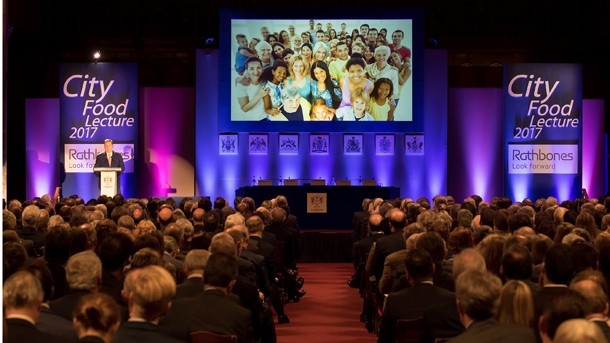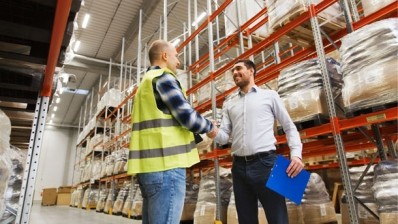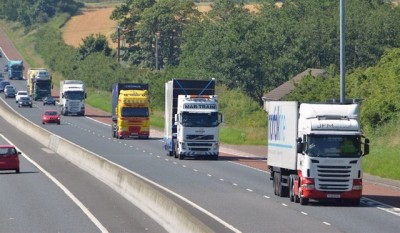City Food Lecture
Supply chains need to be shorter and simpler

Giving Professor Chris Elliott’s 2017 lecture, who was unable to present the paper himself, Michael Bell, executive director of the Northern Ireland Food and Drink Association, and a close associate of Elliott, emphasised the imperative of reducing supply chain length.
It was a view endorsed by two other panellists: outgoing Tesco quality director Tim Smith and Caroline Drummond, chief executive of LEAF, the farming and environment charity, in the debate that followed the lecture.
“Principally, supply chains must be shortened to be strong and if they get very extended and very complex, they become weaker,” said Bell, quoting Elliott’s view on the subject. Elliott is a professor of food safety, and founder of the Institute for Global Food Security at Queen’s University Belfast.
Food sold in the UK was too cheap
The lecture, titled ‘Does it matter where our food comes from?’, called for a new approach to food production. It highlighted the urgency of reconnecting people with their food and suggested food sold in the UK was too cheap.
“I don’t have such a pessimistic view of the ability of the food supply system,” said Tesco’s Smith. “We are responding to people’s growing need for convenience and for their changing ways of living.
“On provenance, it really matters to customers to know where their food comes from. Being transparent and having short supply chains – absolutely right.
‘Being transparent’
“The challenge for us as a nation is if we send a market signal – which might be, we want to buy more British poultry for use in poultry products –the length of time it takes the farming system to respond to that is longer than any of us would like.”
However, he added: “We want affordable, sustainable, healthy and responsibly-sourced food systems. But as soon as you put all of those into the equation, life becomes a lot more difficult.”
Despite calls from the audience for more seasonal food, fellow panellist, writer and broadcaster Tim Hayward argued that consumer demand for produce year-round, could not now be reversed.















